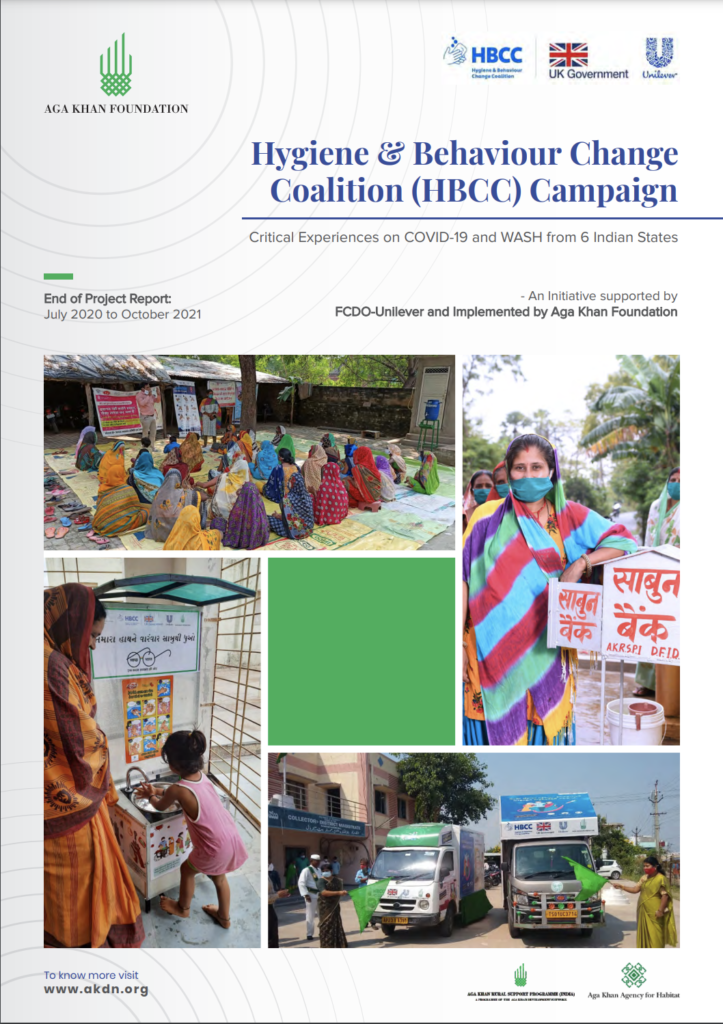New report looks at impact of AKF’s hygiene, sanitation and behaviour change campaign across India
Last year, AKF and partners delivered a hygiene and sanitation initiative to help combat COVID-19 reaching 2.3 million people across six states
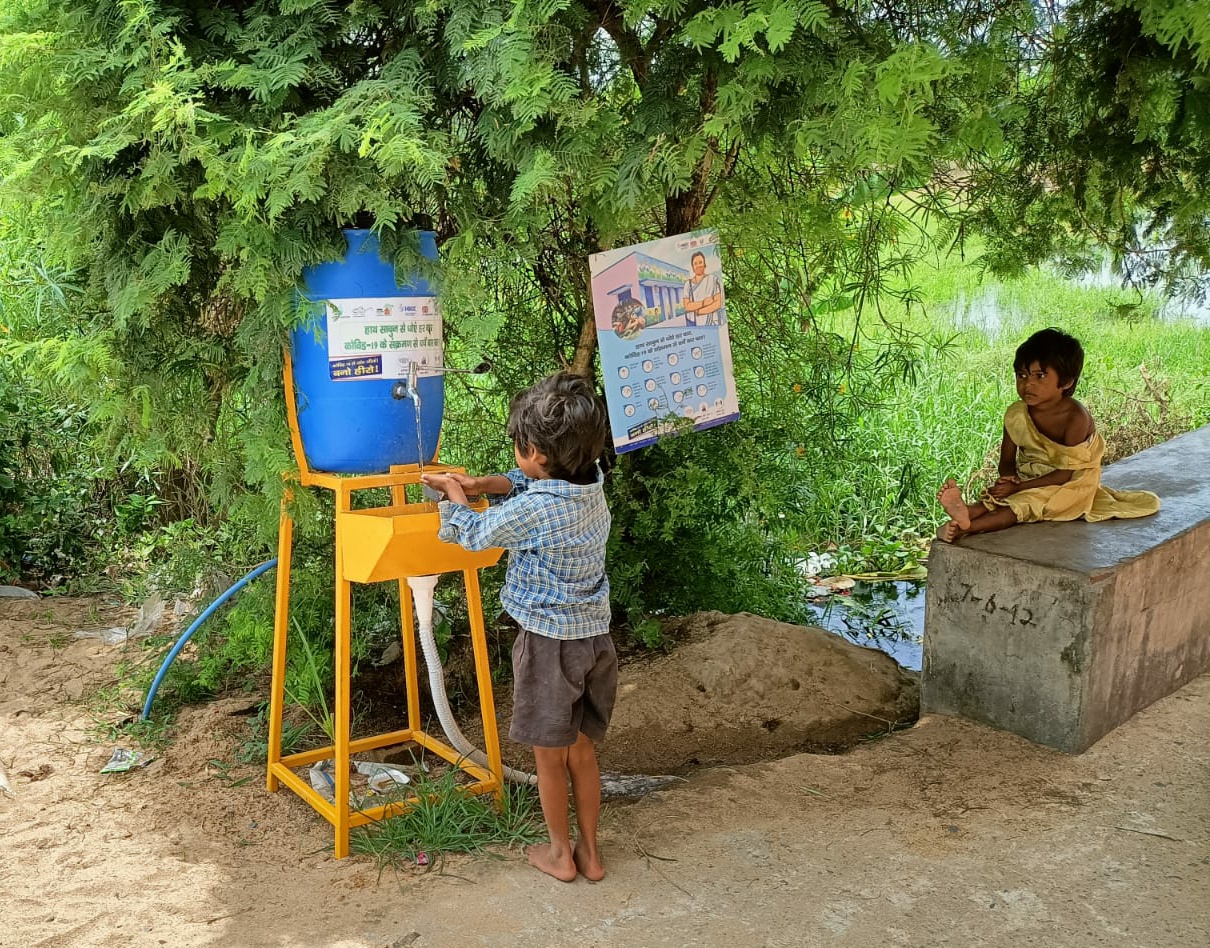
The Hygiene and Behaviour Change Coalition (HBCC) is a joint partnership with Unilever, the Foreign and Commonwealth and Development Office (FCDO) and AKF India, to improve hygiene awareness, education and access to sanitation products and infrastructure across India during the pandemic. This campaign has directly impacted 2.3 million people in high risk, low- and middle-income communities across India.
Investing in hygiene is not only important for ending the COVID-19 pandemic, but for alleviating health costs that are associated with poor hygiene. Although the commitment to hygiene and sanitation is integral, millions of people are unable to adopt these life saving measures due to the lack of awareness and absence of resources.
Driven to change this, AKF implemented the emergency response Hygiene and Behaviour Change Coalition (HBCC) initiative across six Indian states of Bihar, Gujarat, Madhya Pradesh, Maharashtra, Telangana and Uttar Pradesh that directly benefitted more than 2.3 million beneficiaries.
AKF at a glance
6 states
[Bihar, Gujarat, Madhya Pradesh, Maharashtra, Telangana, Uttar Pradesh]
2.3 million people
1200+ villages
28 districts
74 health-care facilities
This campaign was based on an integrated model and had six key objectives to build community resilience against the pandemic:
- Ensuring and strengthening access to soap and hand-washing facilitates
- Driving a mixed mass media campaign across the states through television, radio, billboards to increase WASH awareness
- Supporting government vaccine delivery drives by mobilising communities
- Using innovative digital tools to facilitate remote-based risk communication
- Keeping real-time track of key programme outputs
-
Piloting inclusive WASH access for healthcare
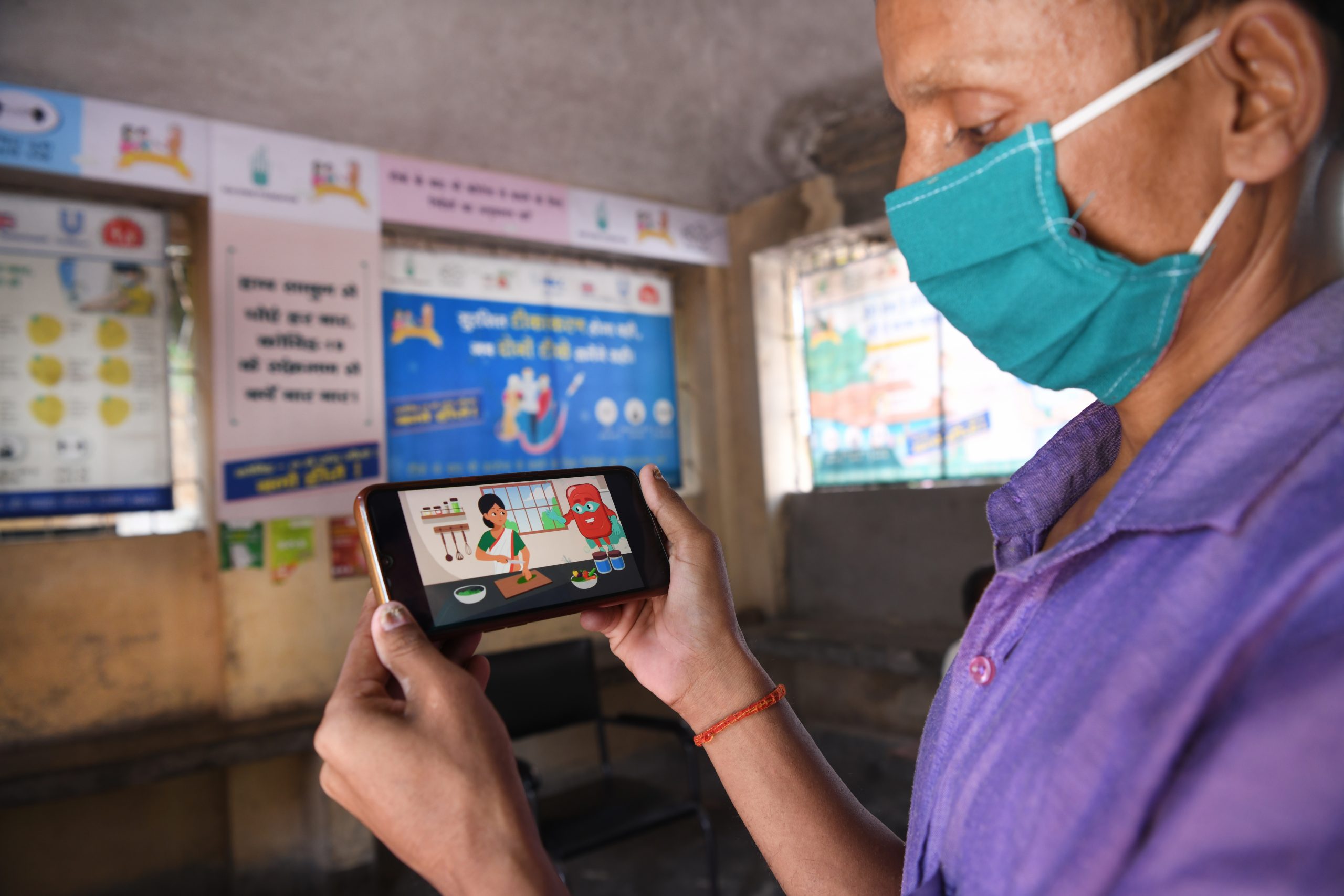
The HBCC emergency response was designed to reach both rural and urban populations whose living conditions increased their susceptibility to contracting COVID-19 and other infectious diseases.
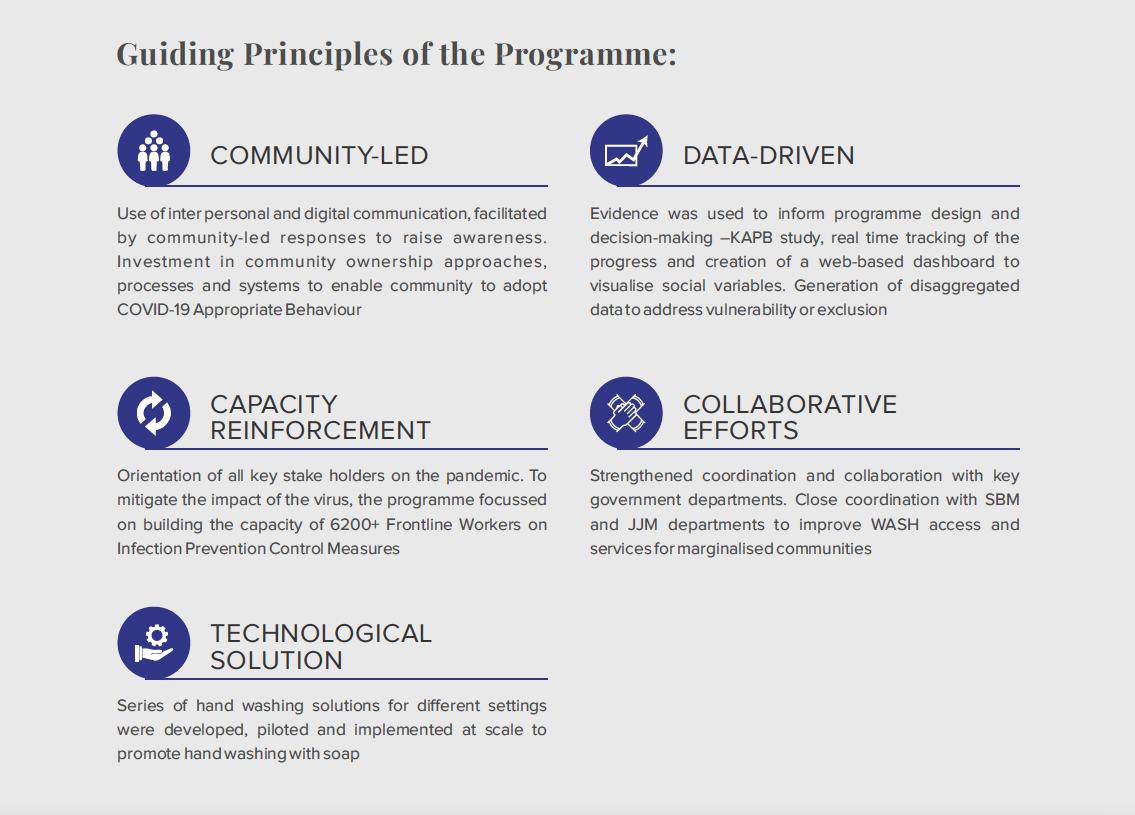
Principal outcomes of this initiative include:
- Large scale demonstrations of hand-washing and community wide campaigns to raise awareness on COVID-19 appropriate behaviour
- The creation of 74 COVID-19 secure health facilities and 136 early childhood development centres and 2076 installations of soap banks and handwashing stations
- Through close engagement with the government, system level strengthening to scale up COVID-19 response and relief efforts
- Capacity building of 6200+ frontline workers on infection prevention control measures
- Strengthened focus on handwashing knowledge and practice to ensure that 73% of population in targeted geographies have access to hand washing facility on premises with water and soap
- Converging with flagship drinking water programme, Jal Jeevan Mission to ensure access to safe, reliable and portable drinking water to 56,000+ people
- Leveraging platform of integrated child development services to promote key messages around effective hand washing, and reach out to 5,50,000 beneficiaries including mothers, pregnant women and children in Telangana
By adopting a multi-pronged 360-degree communication approach comprising of interpersonal communication, digital communication and mass media messaging using television and radio – AKF has been able to effectively promote critical hygiene measures, with a focus on minimising the spread of the virus, amongst the most vulnerable populations and has been successful in reaching 2.3 million people.
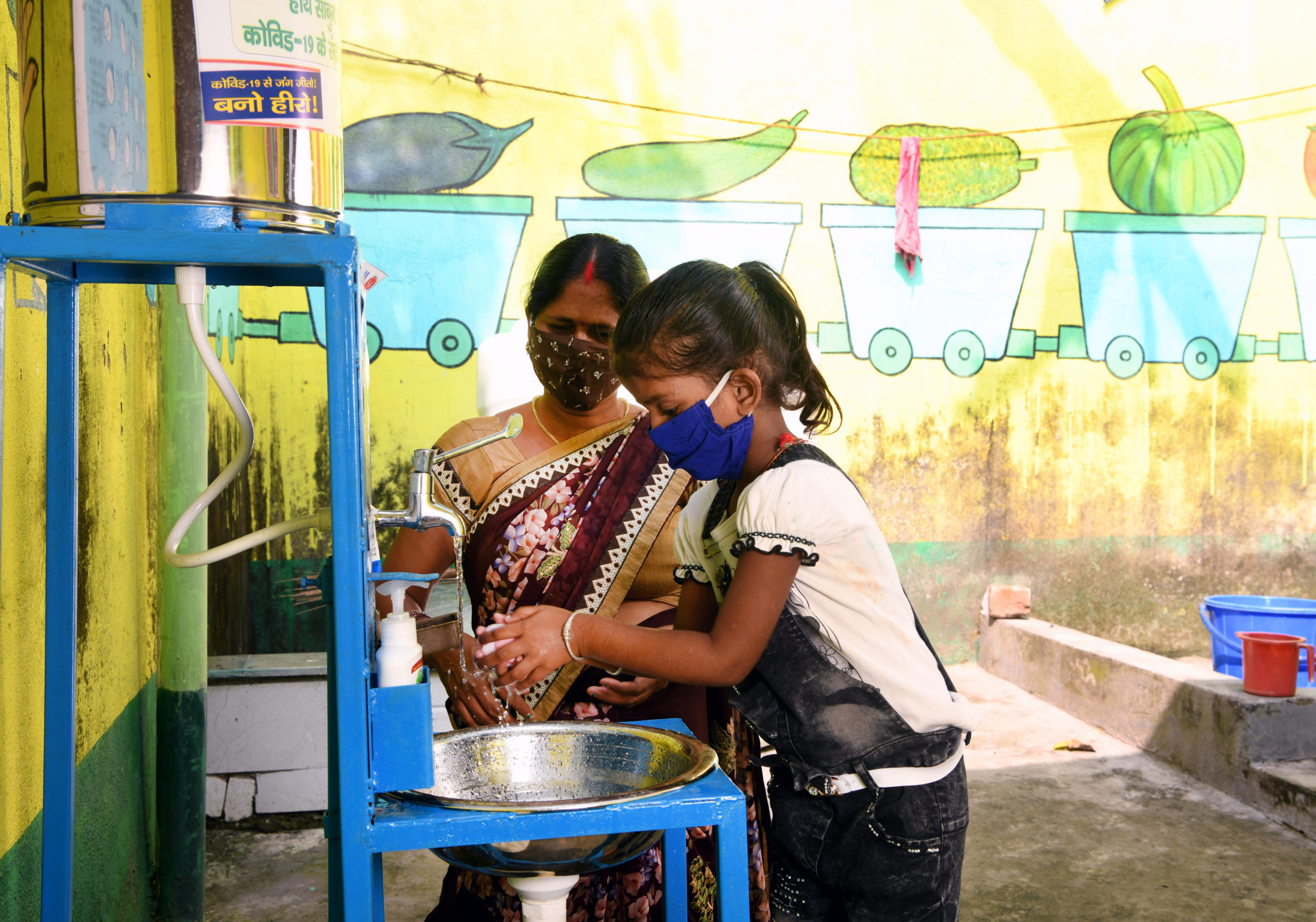
The assessment of the HBCC campaign through a social return on investment study showed that:
- For every 1 Indian rupee invested, the programme delivered a return of Rs. 12.89 on social value
- 72% of the households reported an increase in frequency of hand washing due to soap banks
- More than a third of the households in project areas recalled receiving knowledge on the importance of hand washing with soap though the HBCC initiative
- Households who were not spending on soaps previously now spend money on buying soaps
- About 38% households stated the HBCC campaign as the main reason for them to adopt COVID-19 protocols
- About a quarter of the households had an improved understanding of the symptoms of the disease
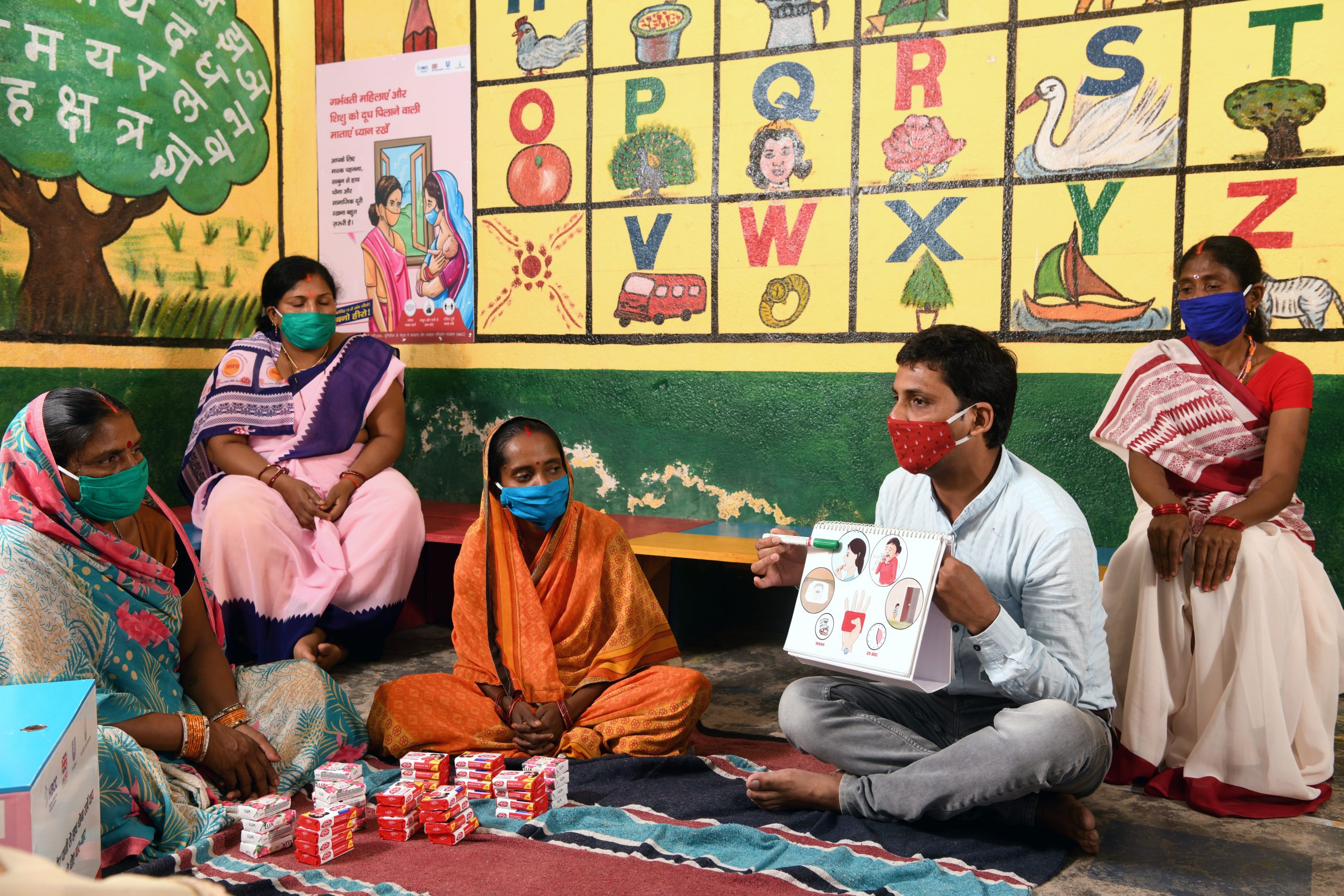
View and download the full report

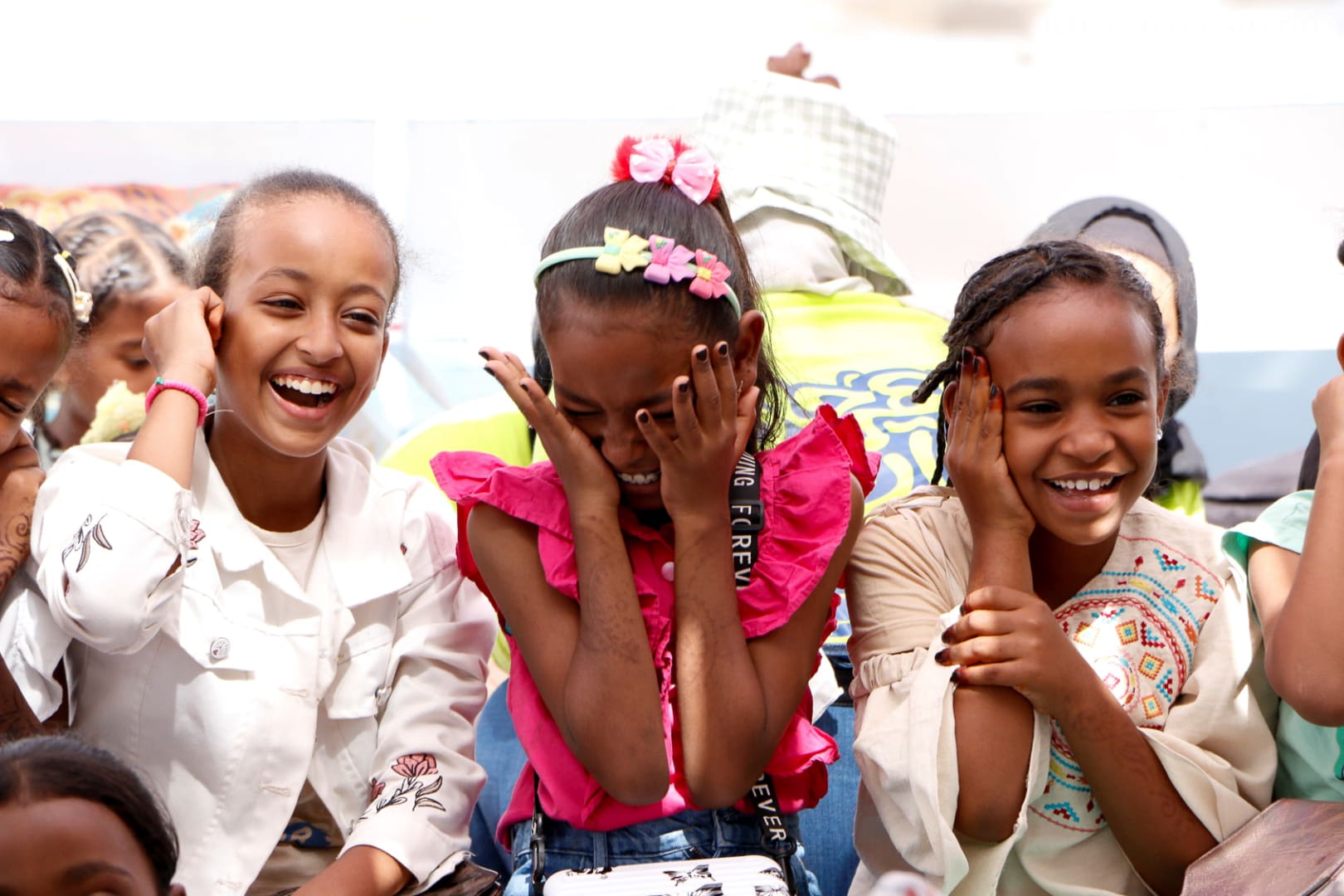
Support our work Your donations are helping us build a future where we all thrive together.
